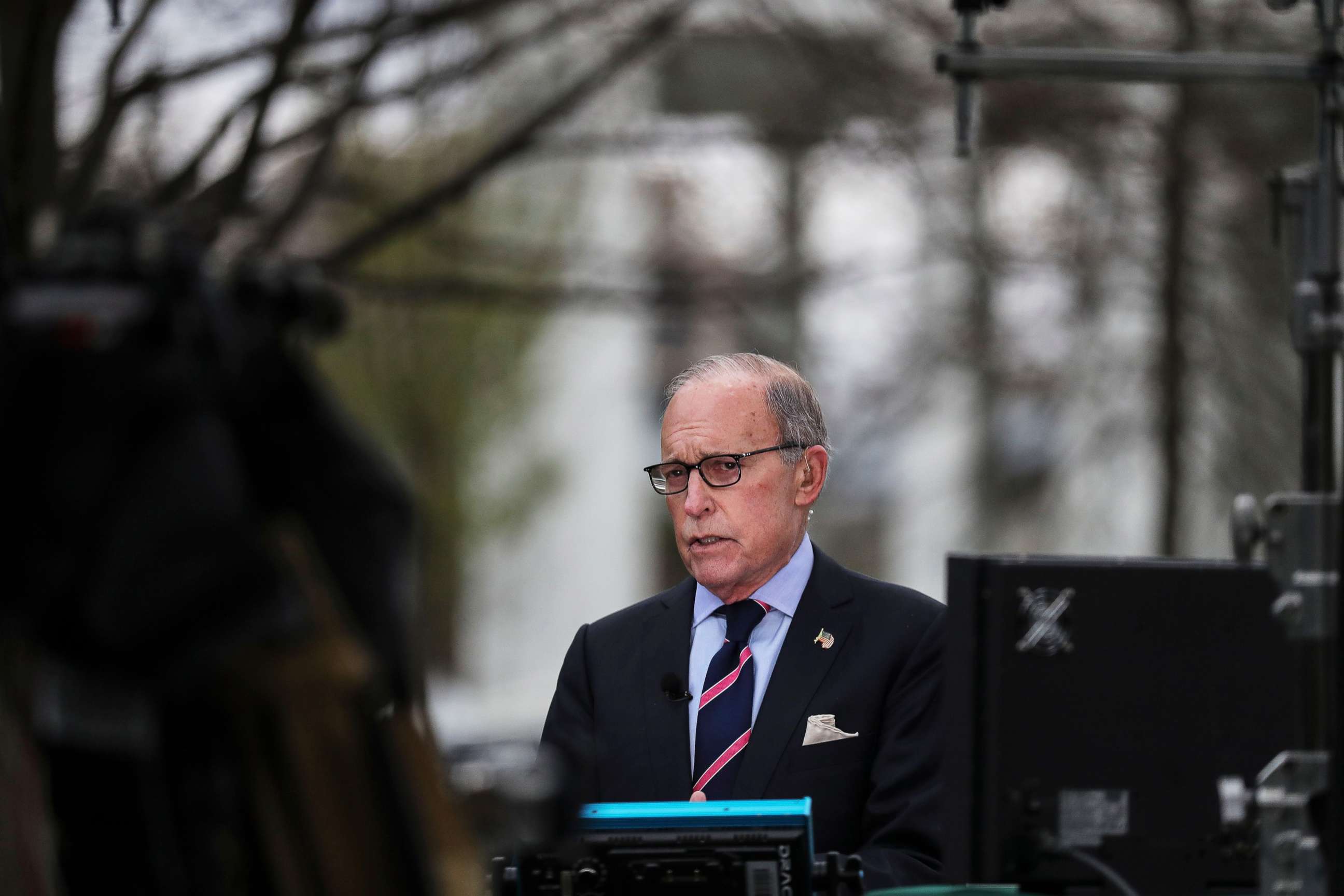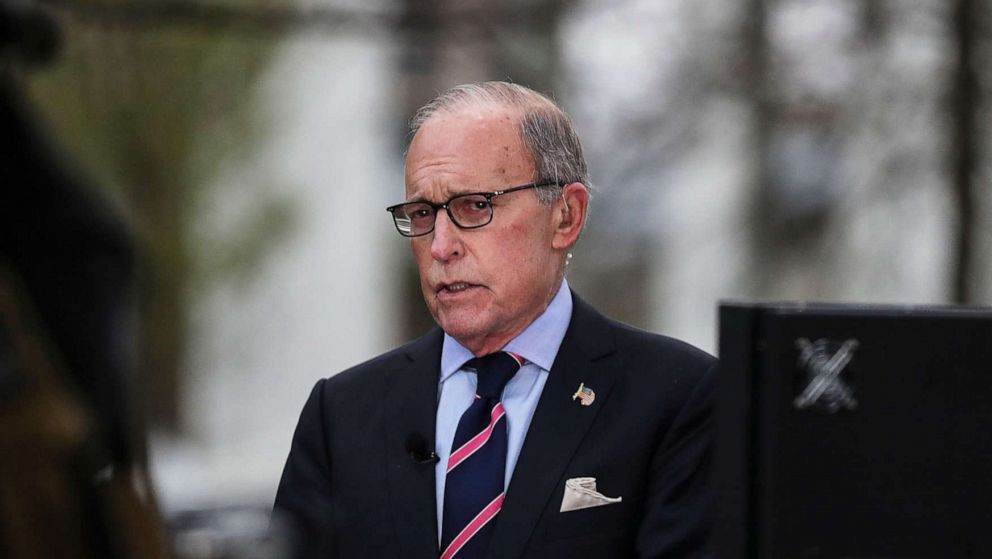'Hard to know' if imperfect stimulus bill will help everybody: Larry Kudlow
National Economic Council Director Larry Kudlow touted President Donald Trump's signing this week of "the biggest assistance package in history," but acknowledged the difficulty in saying with certainty whether the funds would be enough to meet the needs of the millions of Americans impacted by the novel coronavirus pandemic.
"It may not be perfect, but I think it's going to give a tremendous amount of resources to get us through what we still believe is going to be a question of weeks and months," Kudlow said of the $2 trillion coronavirus relief bill in an interview on ABC's "This Week."
"It's the largest mainstream financial assistance package in the history of the United States, so it's hard to know if we could get everything, help everybody," he added on Sunday. "But I'm an optimist. I think the sheer resources here -- we are putting in whatever it takes, we're using every federal power lever possible to help folks and it's going right into middle, lower-middle class people."
The director has been one of the Trump administration's most vocal cheerleaders of the stimulus package, arguing in recent days that it is going to "stabilize the economy."
Among the features of the bill that Kudlow pointed to Sunday are $600 billion in assistance to 175 million individuals in the country, plus $350 billion in loans distributed to small businesses that the director pledged would be made available within a week.
Tune into ABC at 1 p.m. ET and ABC News Live at 4 p.m. ET every weekday for special coverage of the novel coronavirus with the full ABC News team, including the latest news, context and analysis.
"We're trying to keep folks working. We're trying to let them have enough assistance to get through daily family needs with the kids, " Kudlow said, adding, "We're also protecting payrolls, all of the loans and loan guarantees will be forgivable … provided the small business people hang onto their payrolls."
"This Week" Co-anchor Martha Raddatz pressed Kudlow on when checks to individual Americans would be sent out, and he said he believes they would be sent out in "two weeks."
The one-time payments will give $1,200 to individuals making up to $75,000 a year, $2,400 to married couples without children making up to $150,000. The package gives families an additional $500 for every qualifying child.
Raddatz also asked him about the soaring number of unemployment insurance applicants and whether the financial assistance being offered by the federal government will be sufficient, and Kudlow noted the unprecedented expanse of the package.
"I think it will be enough," he said, later noting that "about one-third of GDP, one-third of the whole economy is being covered by this package."
"That's really quite remarkable," he said.
Earlier in the week, Kudlow supported the president's concerns about the long-term economic impact of the widespread shelter-in-place directives across the country, telling Fox News on Monday that the fiscal damage could be "just too great," even as public health experts warned against too rapid a "reopening" of the economy.
But on "This Week" Sunday, Kudlow voiced some uncertainty about the nation's timeline to emerge from the outbreak.
"It could be four weeks. It could be eight weeks. I say that hopefully and I say that prayerfully," he said. "That's what some of the science experts are telling us. I don't know if they'll be right."

Kudlow has faced criticism over comments he made in February claiming that the United States had the situation under control.
"We have contained this. I won’t say airtight, but it’s pretty close to airtight,” he said during a CNBC interview on Feb. 25 before the number of COVID-19 cases in the United States ballooned in March. He also predicted at the time that the virus would not lead to an "economic tragedy."
Asked about those comments by Raddatz, Kudlow defended himself by claiming that he was repeating the information given to him.
"I’m as good as the facts are," he said Sunday. "At the time I made that statement, the facts were: contained … a lot of people agreed with me. In fact, at the time, a lot of people felt at the time that the flu was worse than the virus."
"But as soon as the facts change, we changed our whole posture and our whole strategy and we've gone full bore," he continued.
Raddatz pressed about the impact of the stimulus bill on the nation's budget deficit, questioning how the U.S. could provide such a large sum in assistance without raising taxes, to which Kudlow stressed the importance of the assistance to businesses in response.
"Well, we're not raising taxes. We're cutting taxes right now," he said. "The whole package is essentially direct assistance on the spending side and large-scale tax cuts … probably half of the companies in the U.S., are going to get rebates or deferred payroll tax holidays."
"So, we have tried to hit both sides," Kudlow continued. "We're helping the individuals. We're helping the small business. Those are the major components of the American economy. I hope that the machinery works."
What to know about coronavirus:
- How it started and how to protect yourself: coronavirus explained
- What to do if you have symptoms: coronavirus symptoms
- Tracking the spread in the US and Worldwide: coronavirus map




